Not sure about choosing a charger? Try our revamped Charger Finder!
Try our revamped Charger Finder!
- For Installations
- All our chargers come with a 1 year warranty
- Free Shipping
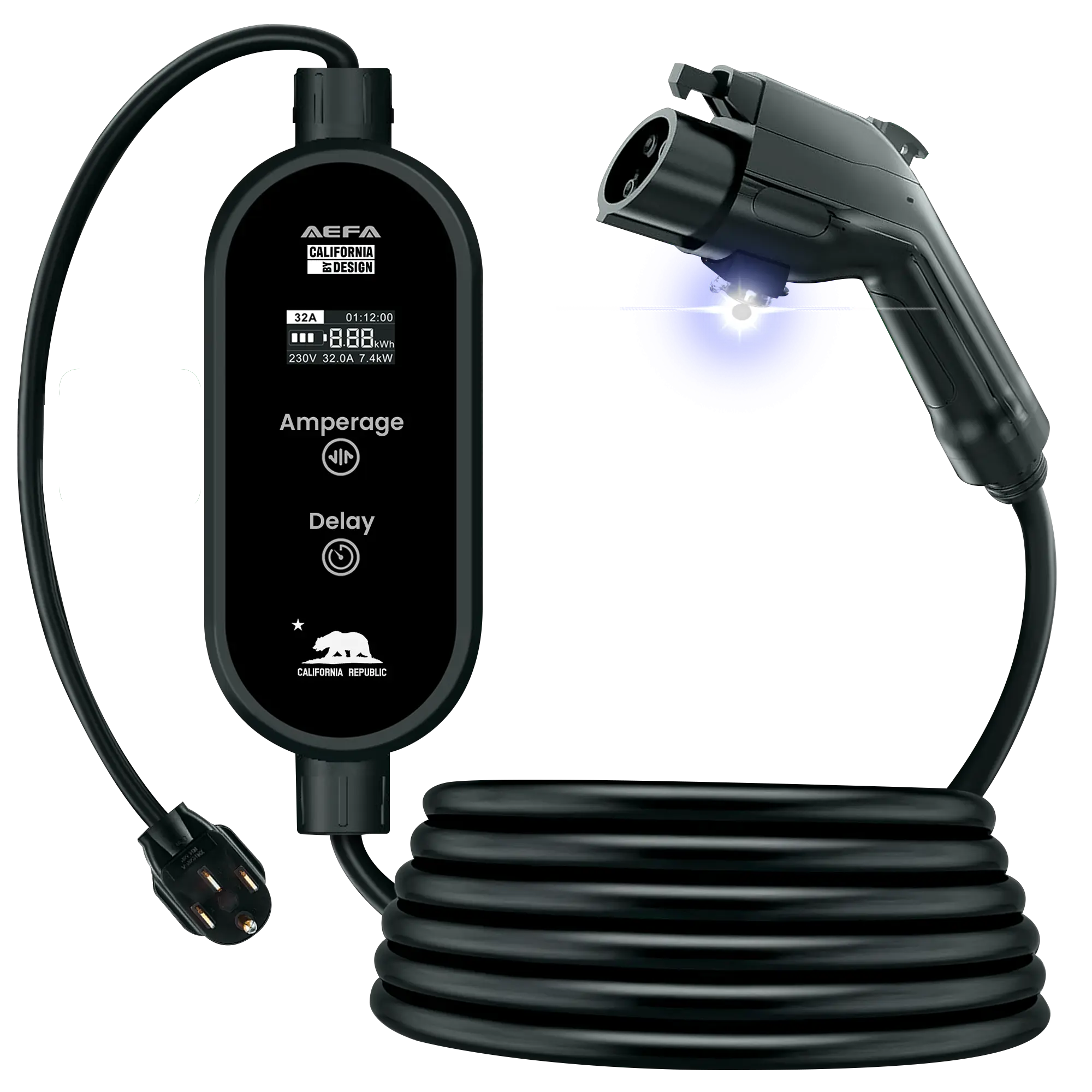

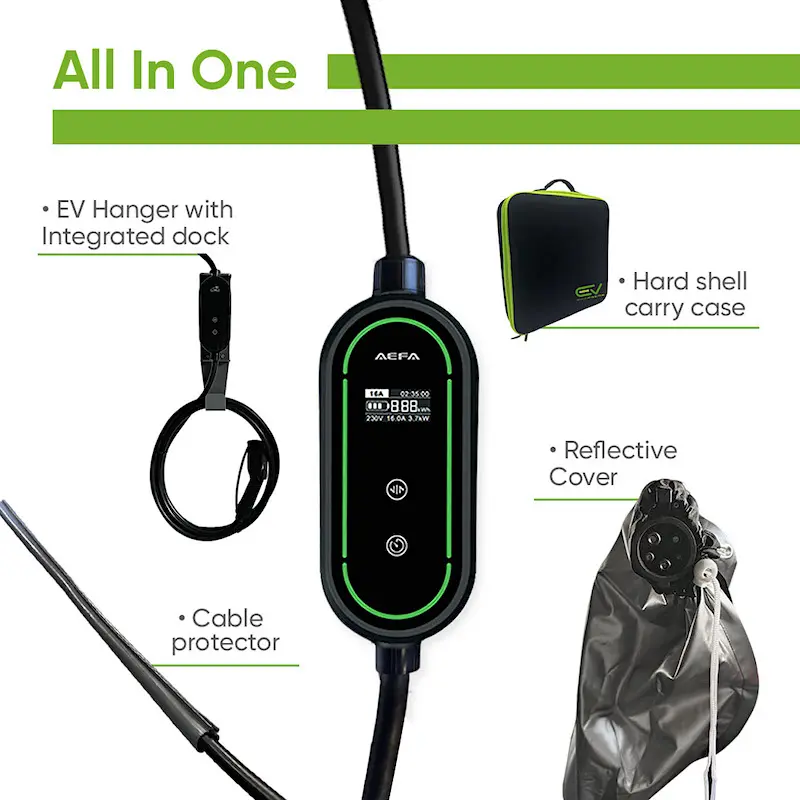
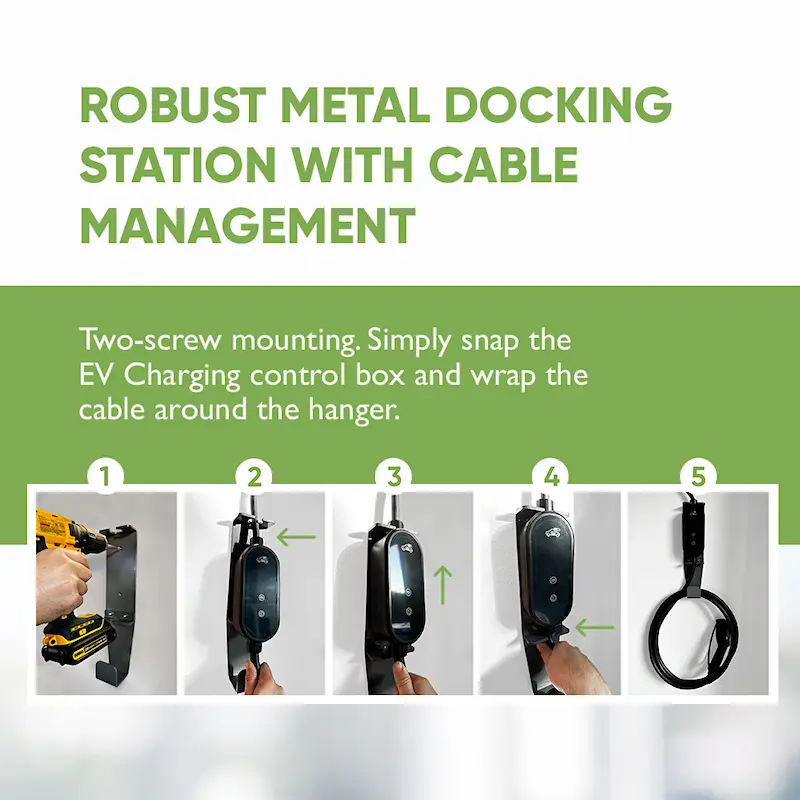
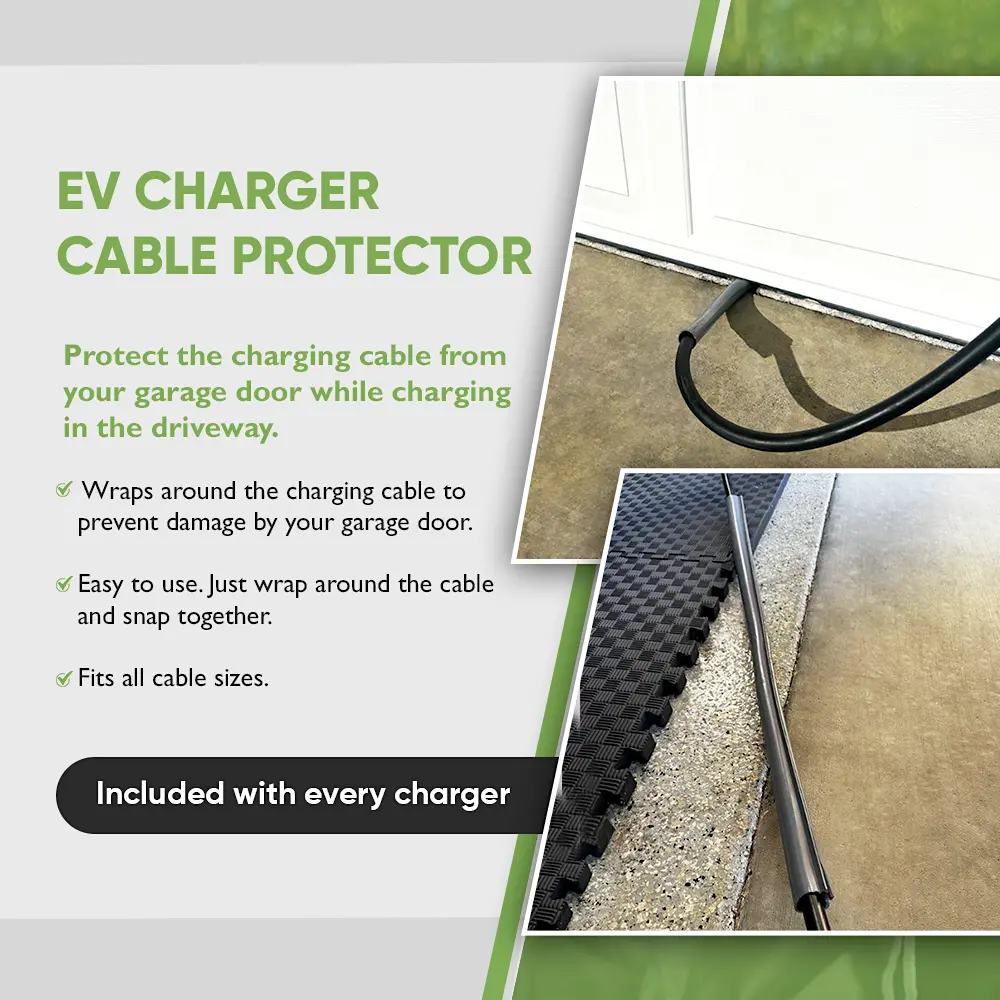
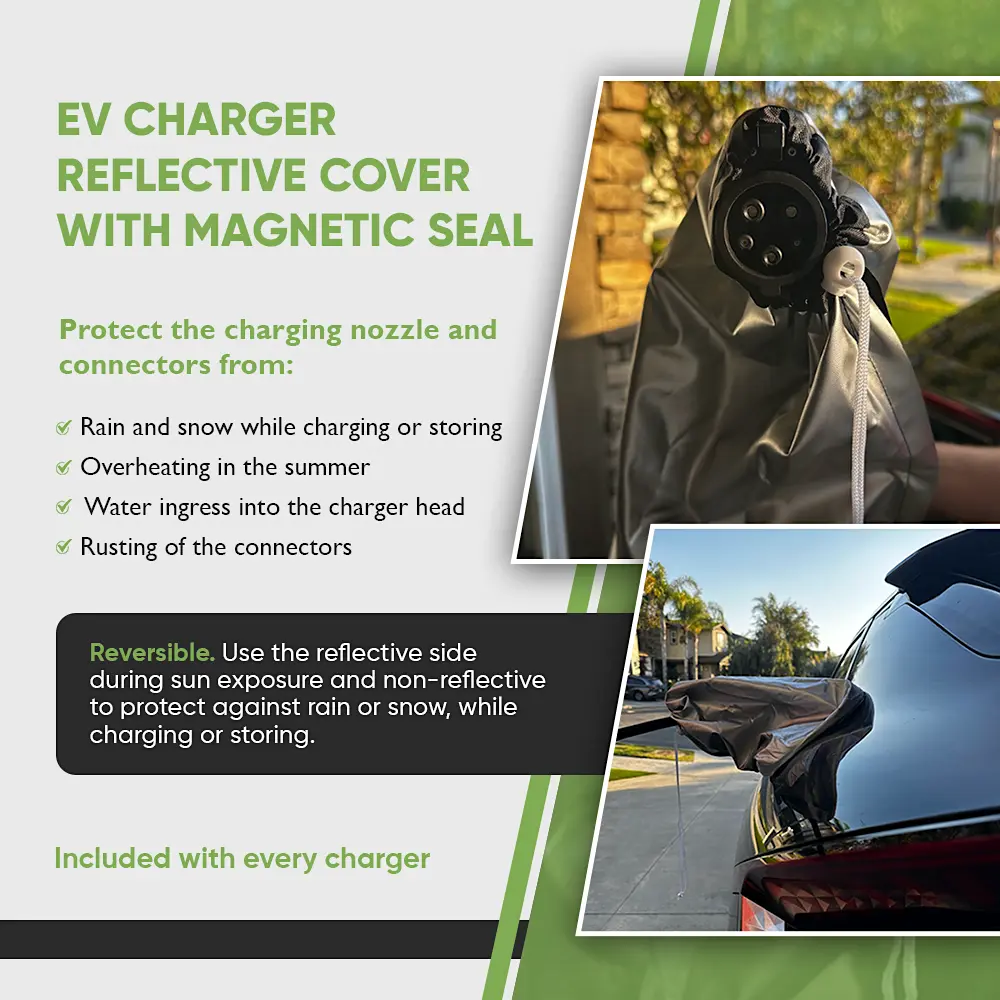
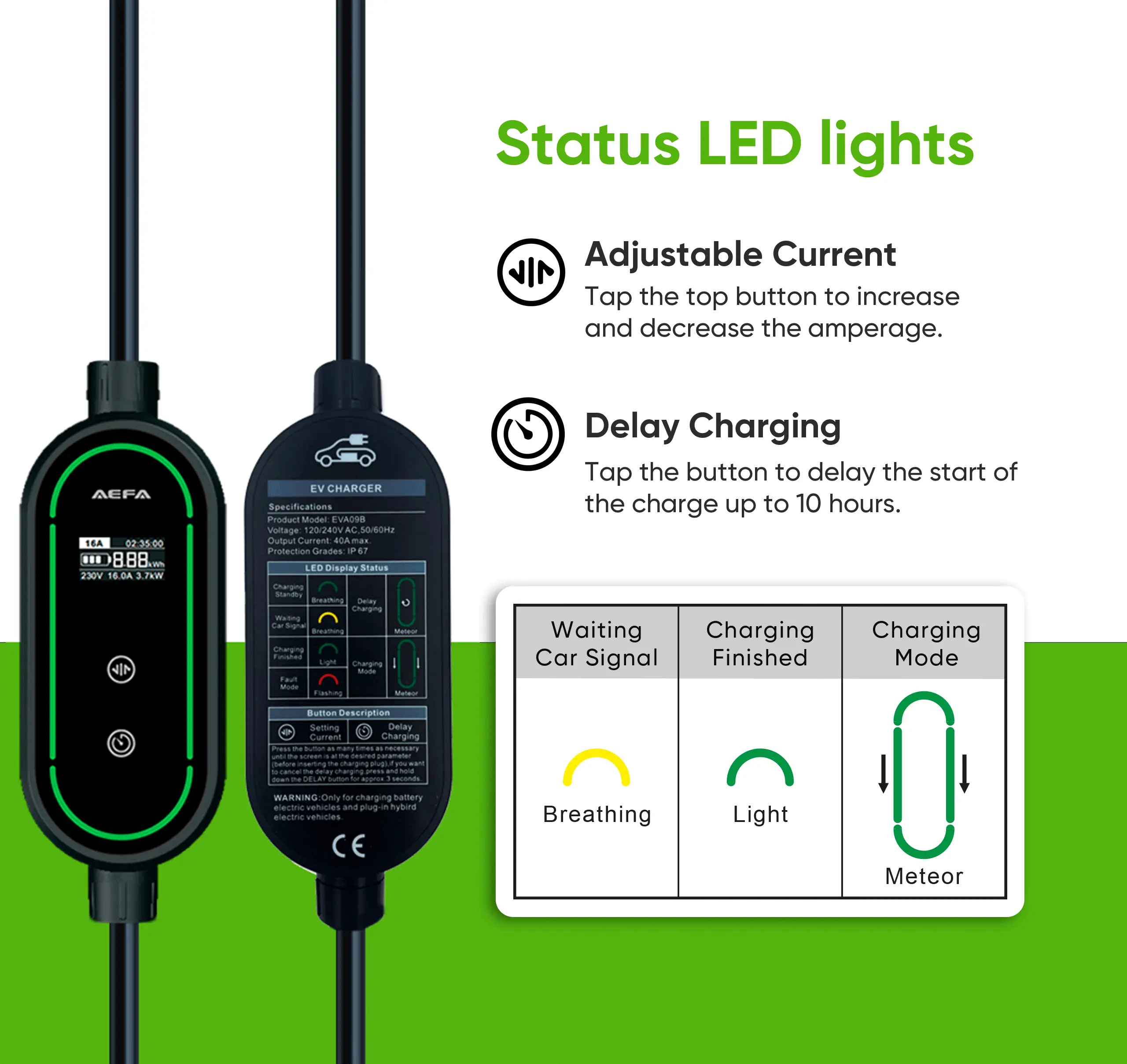
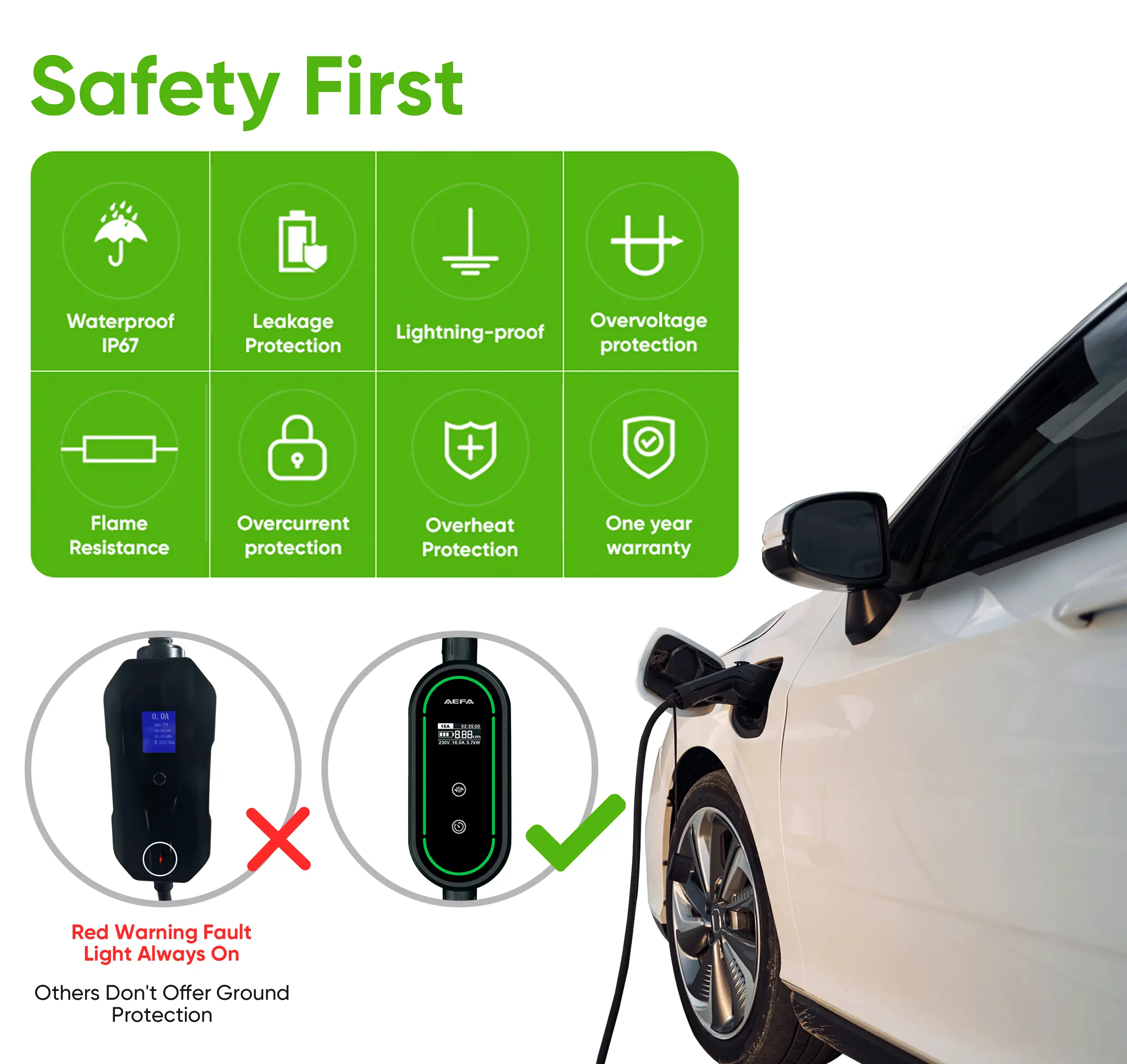
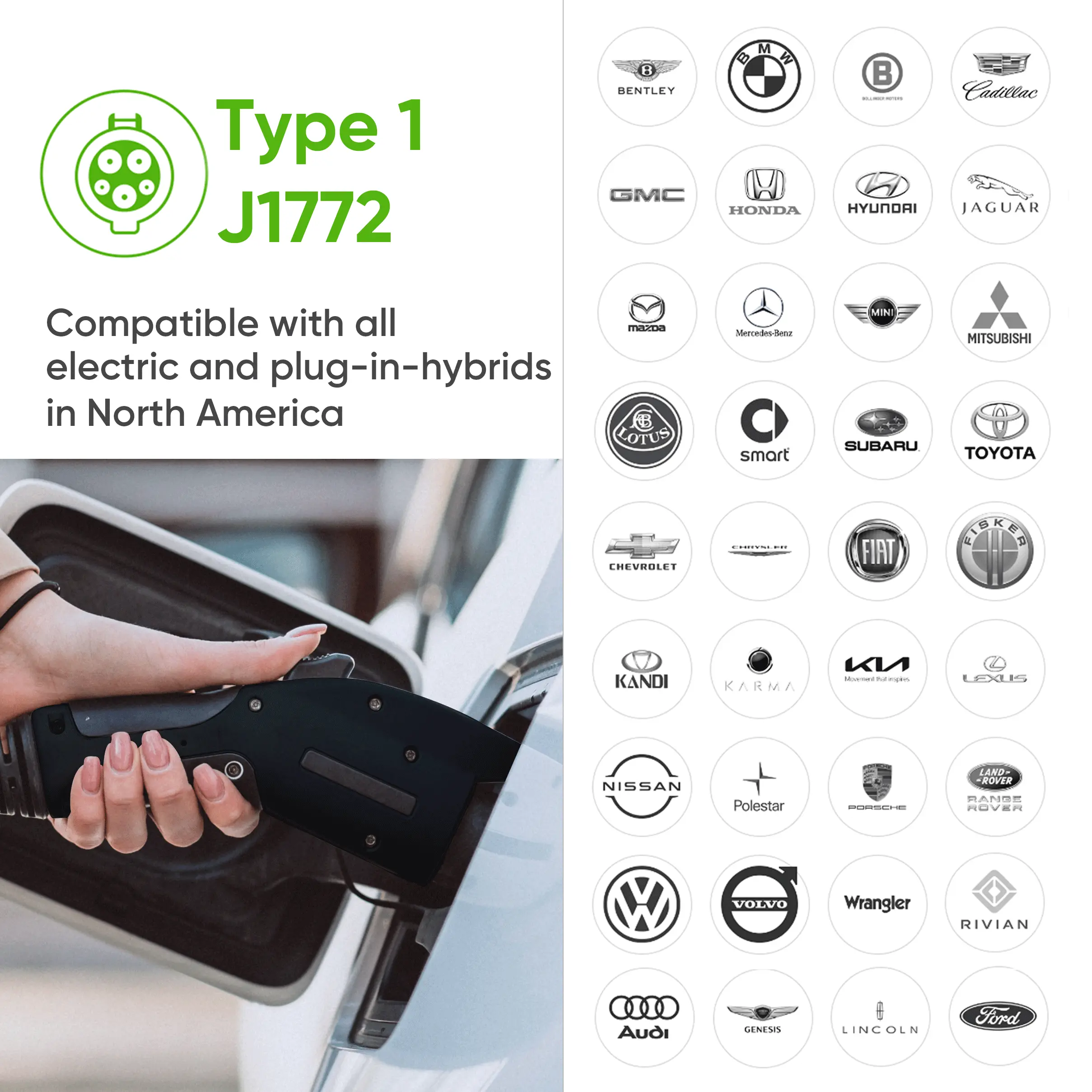
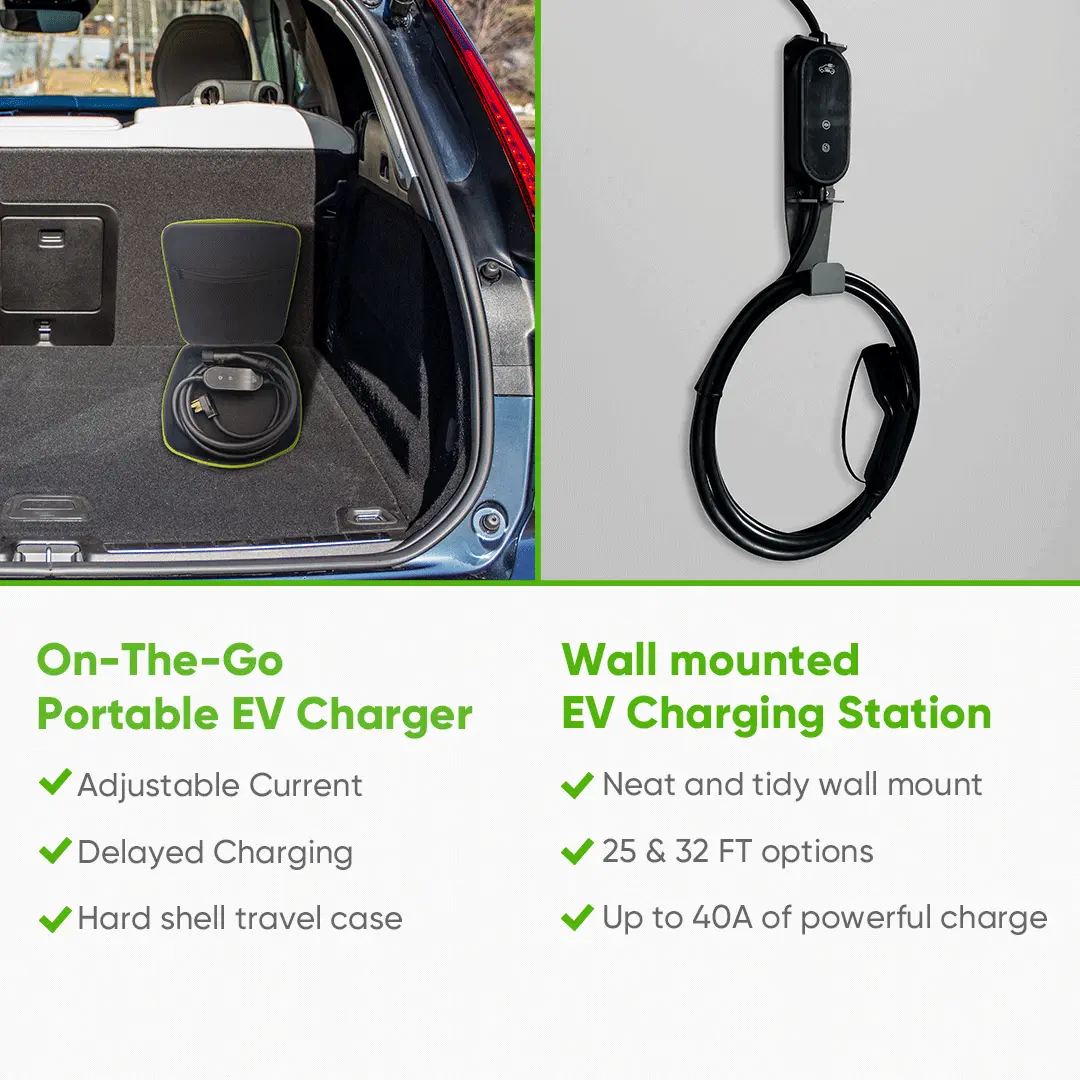
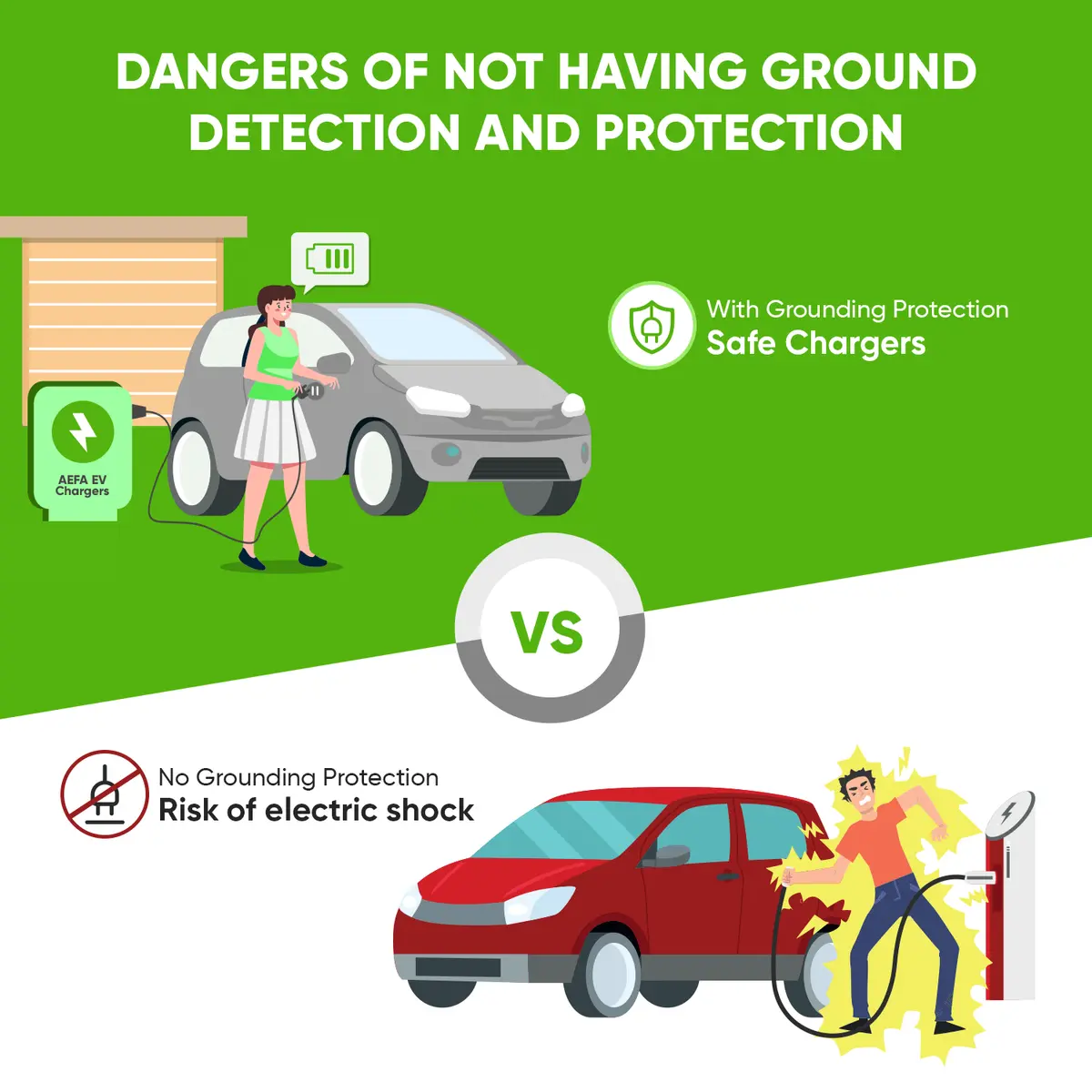
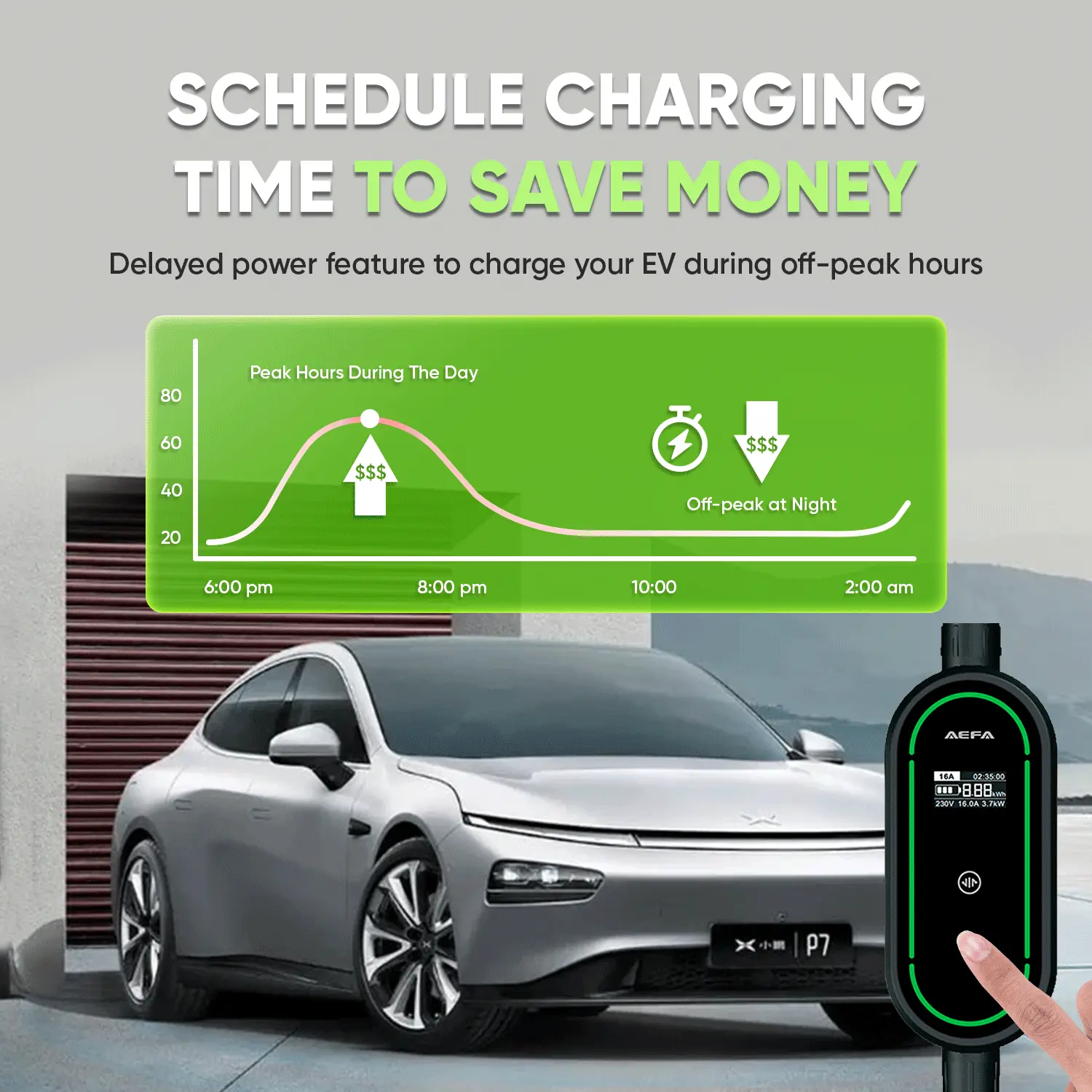
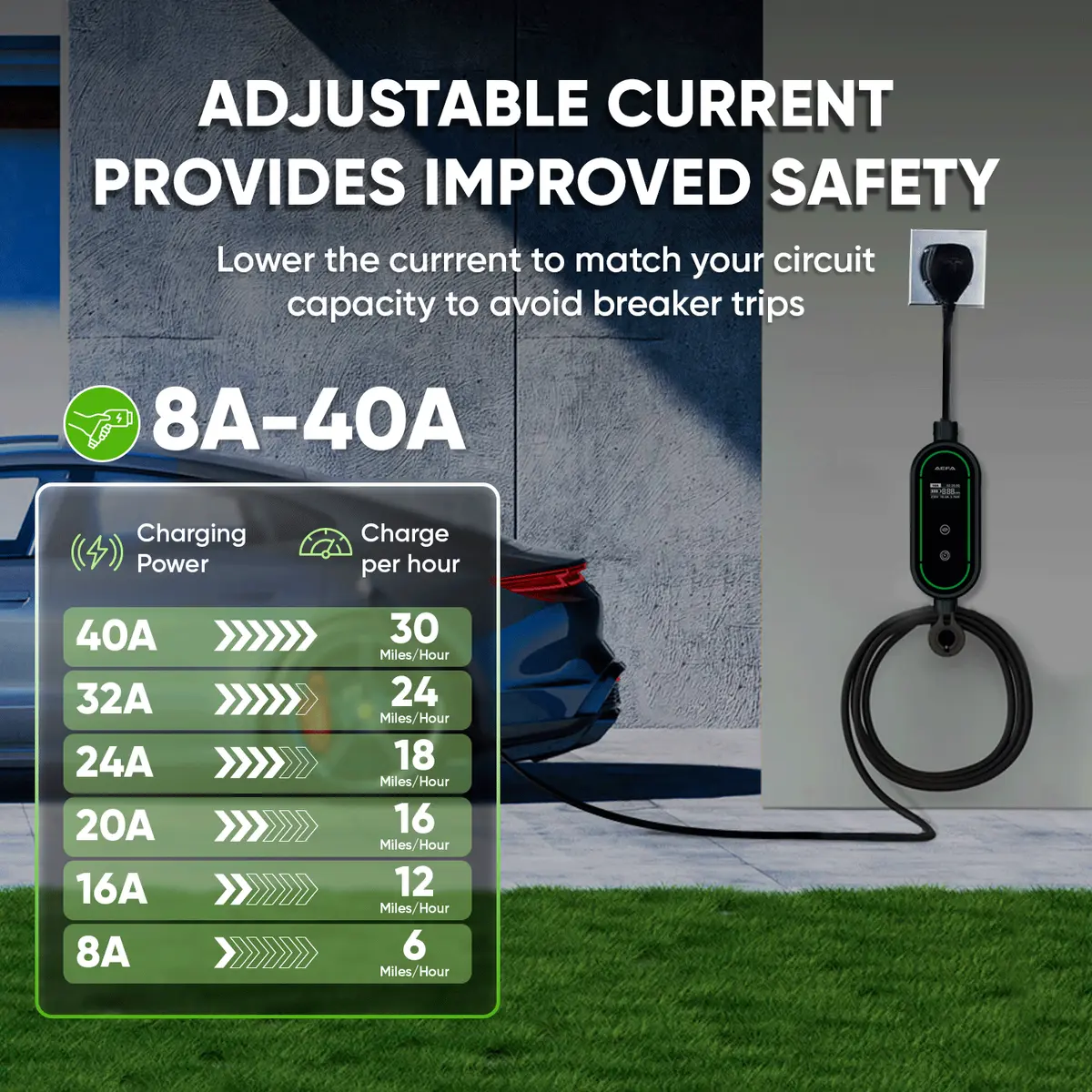
Starting at $120
This product is out of stock.
Order in the next hrs mins for delivery between 00 and 00!
| 3 Pin Plugs | NEMA 5-15 Socket (120V), NEMA 6-30, NEMA 6-20 (240V) |
| 4 pin Plugs
Rating Rated Currents |
NEMA 14-50, NEMA 6-50, NEMA 14-30, NEMA L14-40 (240V)
Indoor/Outdoor rated for installation anywhere 12, 16, 20, 24, 32 and 40 amp |
| Weight | 14 pounds |
| Connector Type | Type 1 (SAE J1772) lockable. Fits all cars including Tesla with Tesla supplied adapter |
| Control Box Dimensions | 2 inches deep x 3.5 inches wide x 8 inches long |
| Cable Length | Convenient 25 feet or 32 feet (total charging length from wall socket 26 feet and 34 feet) |
| Protection | IP67 (international standard EN 60529) |
| Assembly
Temperature |
None
22 degrees Fahrenheit to 140 degrees Fahrenheit |
| Warranty | 12 months |
| Input voltage | 208-240 Volts alternating current (AC), single phase |
| Approvals | CE, CB & TUV Approved |
| Material | Premium TPU with thin and lightweight cable |
| Compatibility | Suitable for all U.S. and Canadian EVs (SAE J1772 inlet) |
| Integrated DC Leakage Protection | Type B residual current detection |
| Surge Protection | Over/under voltage, overload protection, short circuit protection, leakage current protection, over
temperature protection, lightning protection, active ground detection |
| Ground Monitoring | Yes |
| Residual Current Detection | Alternating current 30 milliamps (mA), Direct Current 6 milliamps (mA)
*Requirements of GB 14048.2 – 2008, GB 16916.1-2014 and GB 22794-2008 |
| Features | LED indicator lights to manage charging errors |
The Chevrolet Volt is a plug-in hybrid electric vehicle (PHEV) that has been a game-changer in the automotive industry since its release in 2010. With over 130,000 units sold, it stands as the best-selling PHEV of all time. The Volt masterfully combines the benefits of an electric motor with the convenience of a gas engine, making it an ideal choice for those who want to reduce their carbon footprint without sacrificing performance. This innovative vehicle allows drivers to enjoy the quiet, smooth ride of an electric motor while having the reassurance of a gas engine for longer trips.
| All-electric range |
|---|
| Up to 53 miles |
| Electric motor |
|---|
| 111 kW |
| Battery |
|---|
| 18.4 kWh lithium-ion |
| Charging time |
|---|
| 4.5 hours with Level 2 charger |
| Top speed |
|---|
| 103 mph |
The Chevrolet Volt can be charged using either a Level 1 (120V) or Level 2 (240V) charger. The charging time varies significantly depending on the type of charger used:
This flexibility allows Volt owners to choose the charging option that best fits their schedule and needs, whether they prefer the convenience of overnight charging with a Level 1 charger or the faster turnaround of a Level 2 charger.
The Chevrolet Volt uses a Type 1 Plug connector, which is compatible with most EV chargers available today. The maximum charge rate for the Volt is 7.4 kW (single-phase 32 amp), which translates to:
This compatibility and charging rate ensure that Volt owners can easily find suitable charging stations and enjoy efficient charging times.
The Chevrolet Volt features a slower onboard charger compared to some other electric vehicles. This means that with a 32-amp Level 2 charger, it can add about 12 miles of range per hour. While this is slower than some other EVs, it is still significantly faster than using a Level 1 charger. For many drivers, this charging speed is sufficient for daily use, especially when charging overnight or during extended periods at home or work.
The Chevrolet Volt can be conveniently charged at various locations, including:
When choosing a charging location, consider the type of charger available, the cost of charging, and the convenience of the location to ensure the best experience for your Chevrolet Volt.
| Battery Size |
|---|
| 17 to 18.4 kWh |
| DC Commercial Charging compatibility |
|---|
| No |
| Average Cost per Charge |
|---|
| ~ $2-$3 |
| Level 2 charging |
|---|
| Yes |
| Plug Type |
|---|
| Level 1 – 5-15 (regular 3 pin) 120 volts |
| Level 2 – 14-30 (4 pin electric dryer type) 240 volts |
| Level – 14-50 (4 pin EV Plug) 240 volts |
| Battery Size (kWh) |
|---|
| ~18 kWh |
| ~ 18 kWh |
| ~ 18 kWh |
| Cost per Charge |
|---|
| 1.5 KW/hour @ 12 amps |
| 5.5 KW/hour @ 24 amps |
| 9.6 KW/hour @ 40 amps |
| EV Charge Time |
|---|
| ~12 hours |
| ~3 hours |
| ~3 hours |
The table below shows charge times with different EV plug outlet types for the Chevrolet Volt. We summarize both level 1 and level 2 EV chargers for the Volt.
The onboard charger converts AC power from standard wall outlets into the DC power needed for the battery, with the efficiency of this process varying between plug-in hybrids and full-electric vehicles.
The Chevrolet Volt (all version and models) can be charged with a Type 1 SAE J1772 charger connector at home, work, or at a public charging point. There is a maximum charge acceptance rate, this is how quickly the car’s battery can accept the alternating current (AC) charge rate, which is 240 volts at 3.3 kilowatts per hour. In the table above, this is why the EV charge time does not decrease since there is a maximum hourly charging acceptance rate.
Many public charging stations feature Level 2 chargers that include a universal connector, allowing users to add a significant amount of driving range per hour of charging.
Chevrolet Volt Type1 J1772 EV charger connector


Most EV owners prefer the convenience, comfort, and speed of home EV charging. Many public charging stations can be found at convenient locations such as retail stores, restaurants, and office spaces, enhancing the overall convenience of owning an electric vehicle. Plug-in hybrids, even though they have smaller EV batteries, have less commercial charging options. This is because direct current (DC) commercial chargers aka level 3 or fast EV charging does not work with plug-in hybrid vehicles due to limitations in battery technology. As level 2 commercial chargers get busier or are decommissioned, the need for home installed charged such as a level 1 NEMA 5-15 or level 2 EV charger will become more critical.
Home EV charging is most efficient for a Chevrolet Volt as commercial EV charging stations are getting busier and plug-in hybrids do not work at many commercially located


Plug-in hybrids are extremely cheap to run and offer unparalleled miles between the economy of the gas engine and range of the electric motor. The Chevrolet Volt has one of the highest electric ranges with some owners reporting 40-50 of electric driving.
This convenience eliminates the need for a separate trip to refuel, enhancing the overall usability and efficiency of the electric vehicle.
The tables use U.S. current averages for residential electricity supply of 20 ¢/kWh and assumes a EV range of 40 miles all electric prior to the gas engine kicking in.
| Place | |
|---|---|
| Home (empty to full)* | Commercial Level 2 EV Chargers ** |
| Average Cost | |
|---|---|
| ~ $2-3 | ~ $6 |
| Cost/Mile | |
|---|---|
| $0.05¢ / mile | $0.10¢ / mile |
* Assumes 20 ¢/kWh average U.S. tariff. Residential tariffs vary by State.
** Assumes 50 ¢/kWh tariff for most Level 2 (AC)
If you don’t find the answer you need, feel free to contact us.
Only at level 1 and level 2 Commercial Charging Stations. The Chevrolet is a plug-in hybrid and so does not work at direct current (DC) commercial chargers.
If you are ok not to always have a full EV battery or don’t mind charging during times when electricity is more expensive, a 3 pin residential EV charger (NEMA 5-15 type) is fine.
The fastest charging option is a NEMA 14-50 level 2 EV charger. It is a 240 volt EV charger and will reduce charging from 12 hours to 3 hours.
It uses a type 1 J1772 EV charger. This is the North America standard.
No. Chevrolet Volt uses a J1772 type connector.
No, all EV chargers are interchangeable and compatible.
The most popular is our NEMA 14-50 level 2 charger.
Convenience, speed, flexibility and for a Chevrolet Volt in particular it will reduce your charging time by 9 hours to 3 hours. Our high power level 2 EV chargers will achieve a full EV charge in around 3 hours. Alternatively, we have a complete range of Chevrolet Volt EV chargers with all different EV plug types.
Thanks for your interest! We’ll be notifying you once the product gets back in stock.